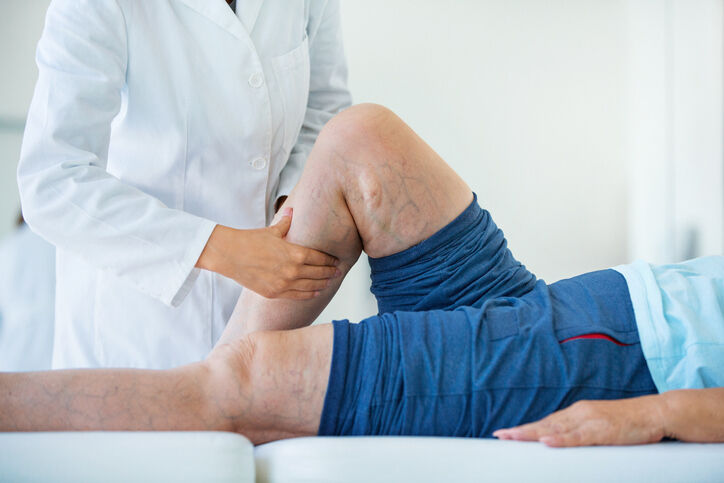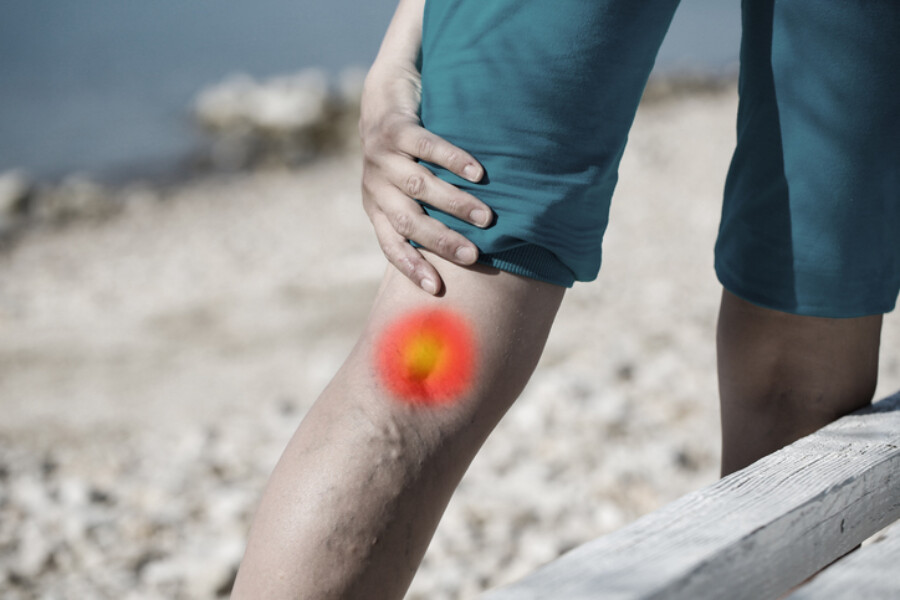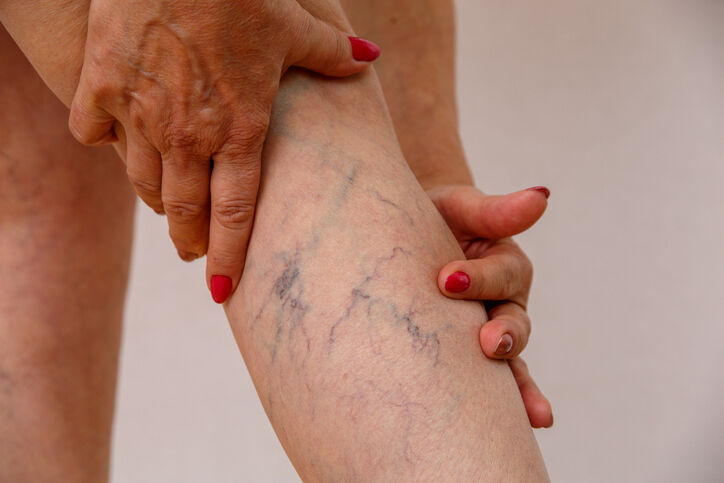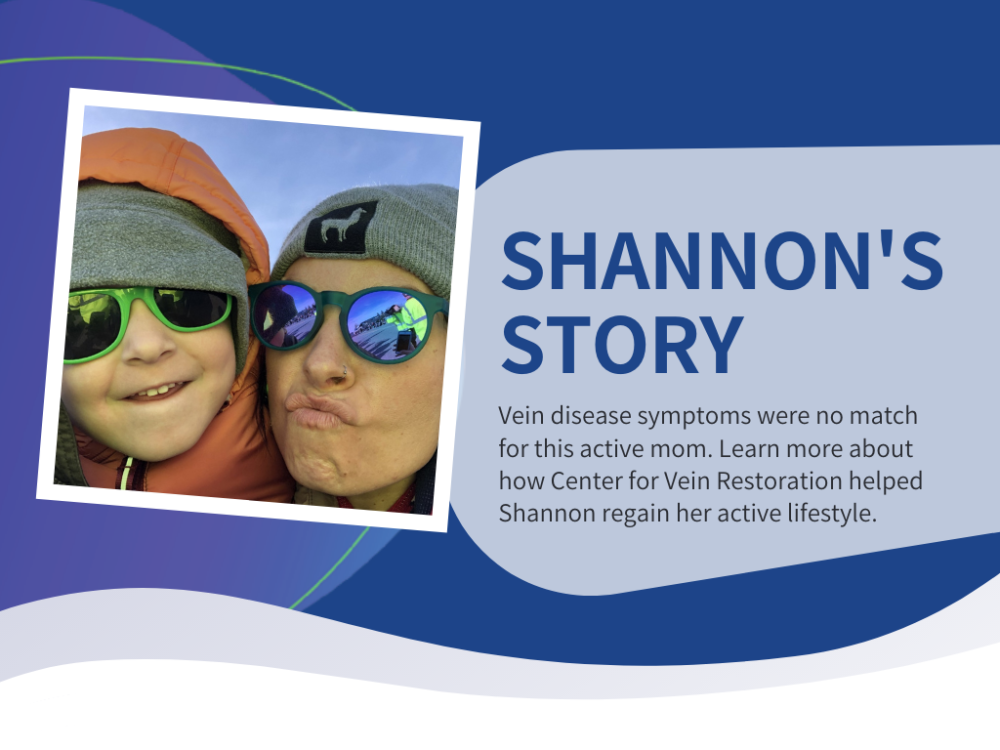Do you think varicose veins are just a cosmetic nuisance? Think again. They can have a significant effect on your everyday life.
Approximately 20 percent of Americans currently live with varicose veins. Many go about their everyday lives despite the symptoms that the knotted, enlarged veins cause. Some of them might not even feel any symptoms at all, so they think varicose veins aren’t a big deal.
But varicose veins are a red flag for poor circulation. The swollen veins signal your blood isn’t flowing smoothly through your veins, which can lead to severe complications and a progressive worsening of symptoms. The bottom line is that varicose veins can affect your everyday life, but it doesn’t have to be that way if you seek treatment.
Four ways varicose veins can affect your daily life
A 2015 study published in the Journal of Clinical Nursing asked people with varicose veins how vein disease impacted their lives. In response, the subjects noted how they adapted their lives around the unsightly appearance and discomfort of the swollen veins. In short, they acknowledged the symptoms negatively affected their everyday activities.
As the study underscores, swollen, protruding, and painful veins can adversely affect how someone who suffers from varicose veins goes about their day. To help you better understand the connection between the quality of life and vein disease, here are four ways varicose veins can make it more challenging to do one’s job or enjoy routine activities:
Pain and other symptoms. Pain is one of the most common unpleasant symptoms of varicose veins. Varicose veins also cause itching, cramping, and a feeling of tiredness and heaviness in the legs. Since vein disease is progressive, those symptoms will likely worsen over time.
Swelling. Tissue around the varicose vein may fill up with fluid, leading to noticeable swelling. Not only is the swelling painful, but it’s difficult to manage and bring down, too.
Embarrassment. Varicose veins can have psychological as well as physical impacts. The 2015 study noted that many subjects attempted to keep the condition secret, going to great lengths to cover their varicose veins with clothing. During winter, it’s easy to hide varicose veins under long pants. When the temperatures heat up, people want to wear more comfortable shorts and skirts but may feel embarrassed because they’ll expose their varicose veins. Those feelings of embarrassment can lead to lower self-esteem.
Harder to do your job. If you sit or stand all day for your job, you’ve noticed how the pain and swelling increase throughout the day. That’s because your blood isn’t able to circulate, which only worsens the symptoms. And it’s hard to concentrate on work when dealing with persistent pain.
Treating varicose veins isn’t just a matter of getting rid of their unsightly appearance or reducing painful symptoms. Remember, vein disease is a progressive condition that worsens over time. Beyond swelling and pain, varicose veins could lead to other serious complications, including bleeding from the slightest bumps and skin discolorations. Poor circulation also causes hard-to-treat skin ulcers on the lower leg that could become infected.
Perhaps the most severe complication is a blood clot. Varicose veins have been linked to a heightened risk of deep vein thrombosis (DVT) or a blood clot deep in the leg veins. Because the clot originates in the vein, it could easily travel to the heart and lungs and cause potentially fatal consequences.
With treatment by a CVR physician, you’ll eliminate the pain and any possible complications from varicose veins. Current treatment techniques are minimally invasive and completed in a brief office visit. Afterward, you can return to your everyday activities without worrying about being sidelined by varicose vein symptoms.
Don’t live with varicose veins!
Center for Vein Restoration (CVR) operates three locations around Phoenix, Arizona, all equipped with a full range of minimally invasive treatments to eliminate bulging veins. Each office is led by an experienced physician who understands the pain and psychological effects varicose veins can have on a patient.
Jeffrey Alpern, DO, is a board-certified cardiovascular and thoracic surgeon with more than 40 years of medical experience.
Nick Morrison, MD, FACS, FACPh, is a board-certified general surgeon in Venous and Lymphatic Medicine.
Soohyun Kim, MD, RVT, brings her expertise as a vascular surgeon to treating vein disease.
Contact their offices today for a consultation, or call 240-965-3915 for more information.
3509 S. Mercy Road Suite 101
Gilbert, AZ 85297
1500 S. Dobson Road, Suite 310
Mesa, AZ 85202
9515 W. Camelback Road
Suite 108 Phoenix, AZ 85037



